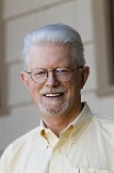“Start early and take a holistic, positive approach to the challenges kids face.”

That’s Brian Flay’s advice for schools, families and communities to raise kids who are healthy, socially, and emotionally. It’s based on his research, conducted in 20 elementary schools in Hawaii and recently published in the American Journal of Public Health, which shows that an intervention begun in the first grade significantly reduced problem behaviors four years later.
Positive Action, a K-12 program for enhancing behavior, academics, and character, employs 15-minute daily interactive lessons focusing on responsible self-management, getting along with others, and self-improvement.
Brian’s study found that after four years, students in the program were half as likely to abuse substances (tobacco, alcohol, drugs), show violent behaviors (carry a knife or threaten someone), or engage in sexual activity. In 2010, the Journal of Research on Effective Education will feature another of Brian’s studies, which shows the program also improves attendance, grade retention, disciplinary referrals, and academic achievement.
“Over the years, we’ve seen numerous programs aimed exclusively at fighting drugs or sexual activity or violence,” says Flay. “Rather than focusing on the negative aspects of risky behaviors, this program focuses on positive actions – the physical, intellectual, social and emotional aspects of each child.” It’s helped tens of thousands of students, families and their communities over the past 25 years and is recognized by the US Department of Education “What Works” clearinghouse as a top-rated program in the nation for improving behavior and academics.